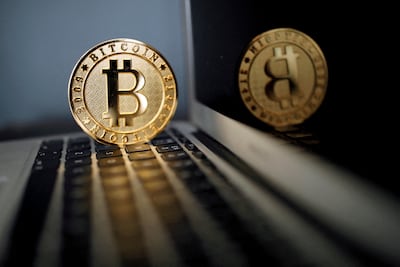International crypto exchange Huobi Group has secured a provisional licence in Dubai to offer a full suite of virtual asset exchange products and services in the emirate.
The company received a minimum viable product provisional approval from the Dubai Virtual Assets Regulatory Authority, while it undertakes the process of applying for a licence, it said in a statement on Monday.
Huobi Investment, the company's UAE-based entity, will now be able to offer services within the parameters set by the regulatory authority's specialised “test-adapt-scale” model, it said.
It also aims to establish a regional headquarters in Dubai, the company added.
“The Dubai government is committed to turning the emirate into a global hub for the future digital economy and being at the forefront of financial innovation,” Huobi’s chief financial officer Lily Zhang said.
“Huobi is optimistic about the city’s potential and the future opportunities it offers.
“We look forward to working with [the Dubai Virtual Assets Regulatory Authority] and other local authorities to further invest in Dubai and foster growth of the virtual asset industry there.”

The Dubai Virtual Assets Regulatory Authority serves as the single custodial entity mandated to license and govern the cryptocurrency sector in the emirate, including all mainland and free zones, but excluding the autonomous financial free zone at the Dubai International Financial Centre.
In March, Dubai adopted the first law in the emirate that regulates virtual assets. In the same month, the Dubai Financial Services Authority, the regulator of the emirate’s financial centre, published its regulatory framework overseeing crypto tokens, or cryptocurrencies, for public consultation.
A host of crypto trading platforms have secured licences to operate in Dubai in recent months. These include CoinMena, Bahrain's Sharia-compliant crypto assets trading platform; Binance, the world’s largest cryptocurrency exchange; BitOasis; Bybit and FTX Europe, among others.
The Middle East is one of the fastest growing cryptocurrency markets in the world. It received $271.7 billion worth of cryptocurrency between July 2020 and June 2021, which represents 6.6 per cent of global activity, Chainalysis data shows.
Huobi will focus on professional investors and offer spot and over-the-counter trading services to a limited subset of pre-qualified investors and professional financial service providers in Dubai, it said.
It also plans to expand its reach to retail investors in the region in the coming months.
The company, which was set up in 2013, has obtained licences for various cryptocurrency-related services in different countries and regions, including South Korea, Japan and Gibraltar.


